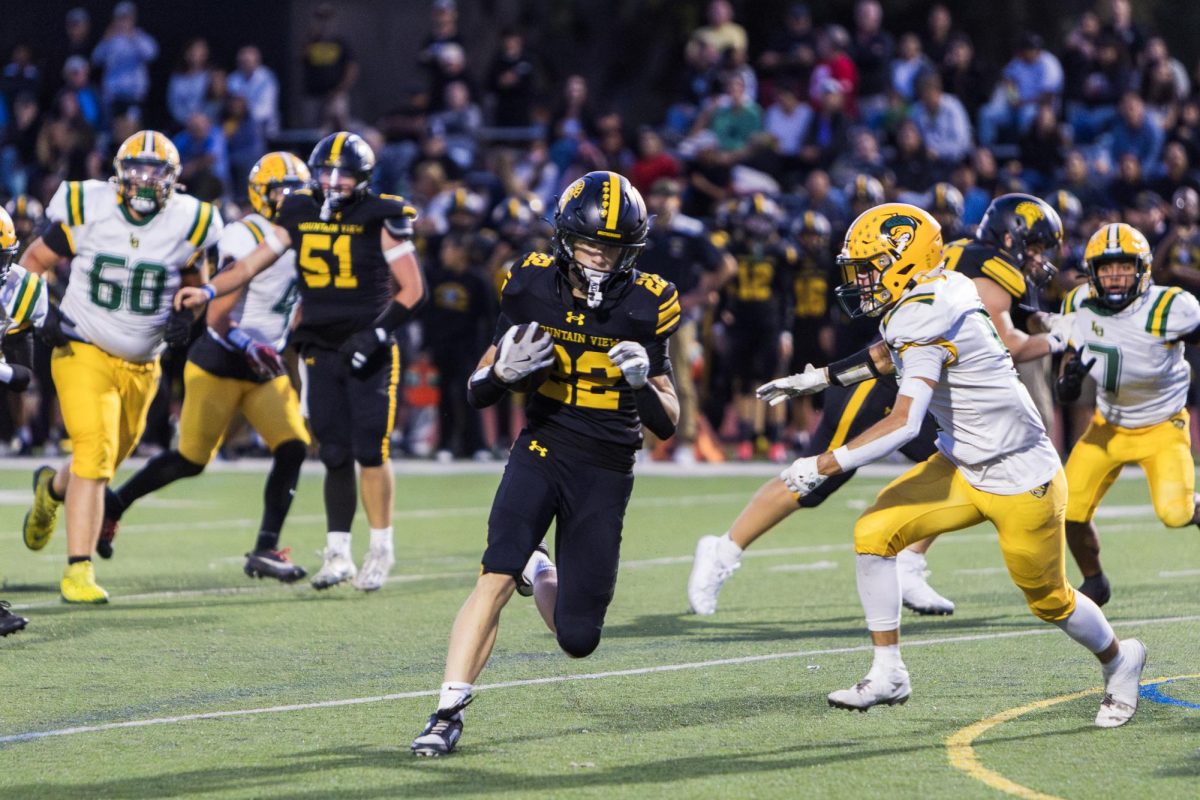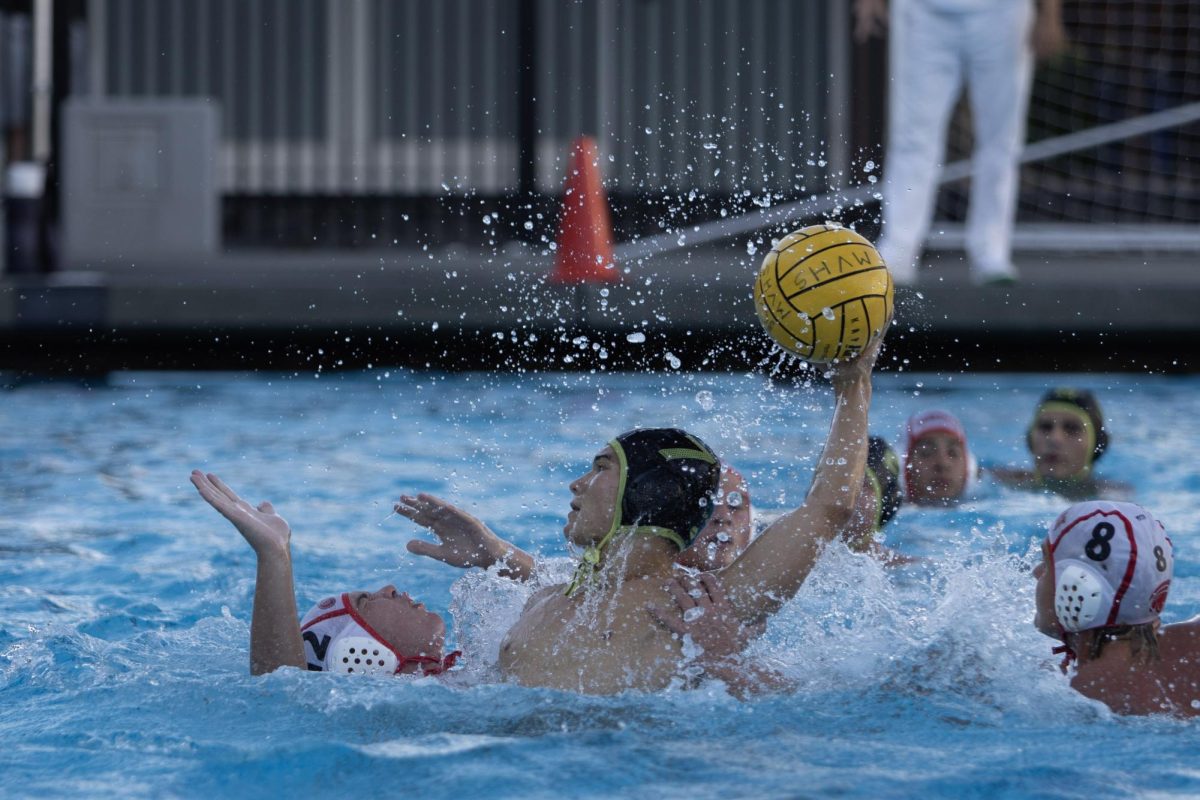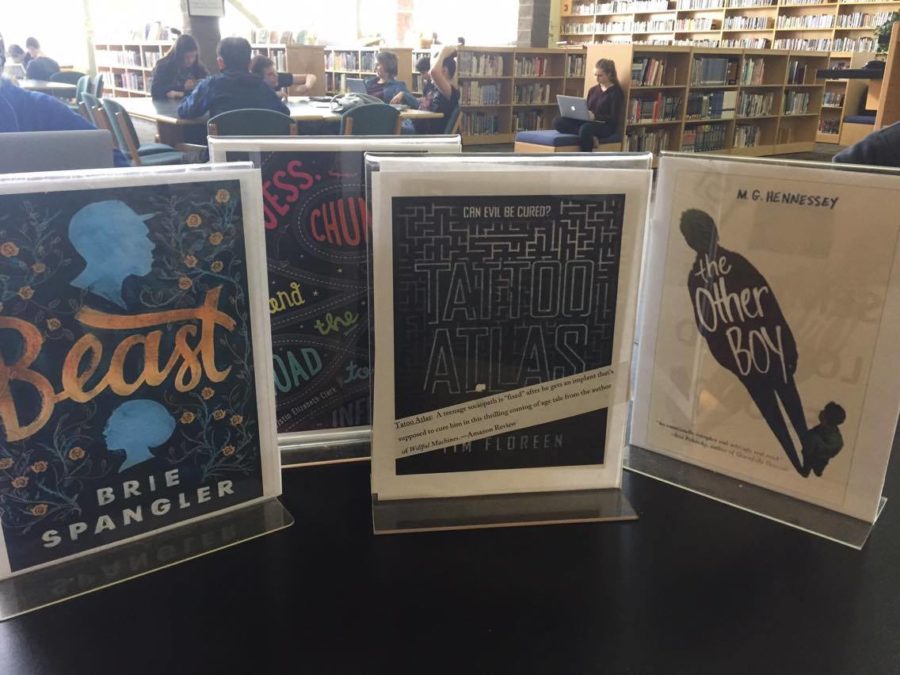Three LGBTQ fiction authors spoke at a book panel in the MVHS library on Friday, Feb. 10. The event was moderated by junior Percy Langston, who asked preliminary questions before opening it up to audience members.
The first author, M.G. Hennessy, whose book, The Other Boy, tells the story of a transgender boy in middle school who has to grapple with both being transgender and how people will perceive him if they find out.
The second author was Kristin Elizabeth Clark, who wrote Jess, Chunk, and the Road Trip to Infinity, which is about a transgender girl, Jess, who has just graduated high school and goes on a road trip with her best friend, Chunk, to surprise her dad at his wedding.
Finally, there was author Tim Floreen, who wrote the science fiction thriller, Tattoo Atlas, which is about a boy, Rem, who sees a horrific crime committed by his psychopathic classmate, Franklin, and finds that his mother and several other scientists are now experimenting on Franklin to try and “cure” him of his violent ways. During testing, Rem and Franklin have to meet face to face and over time they develop feelings for each other, but Rem is unsure if he can ever trust Franklin.
The authors talked about how they started writing in the LGBTQ genre, all saying that they drew inspiration from personal experience.
“My oldest kid came out to me as a young adult and one of the many places that we looked for resources and support for her was fiction…that really inspired me to write ‘Freak Boy’,” Clark said. Hennessey also said that she drew from personal experience for her book in that she empathizes with the character because she has someone close to her who went through and is still going through the same situations.
“I have a transgender person in my life who is really special to me and we talked a lot during and after the transition about how there are not many transgender fiction books out there, so that prompted me to write this book,” Hennessey said.
The authors also talked about the responses they have received for having a book with an LGBTQ character. They all said they had trouble having a character that is gay or transgender either with publishers, agents, reviews, etc., but recently it has become much more accepted.
“When I first got my agent six years ago, I had also written a middle grade book that hasn’t been published yet. It had a gay main character who was twelve or thirteen years old and we shopped it around and we weren’t able to find a publisher for it. However, one publisher said that they would buy it if I made my character straight… times have changed so much though,” Floreen said. Clark also said that she found publishers to be much more open now than they were years ago, but there is still more progress to be made.
On the flip side, the authors talked about the positive reactions to their books from their readers and how much their stories have affected them. When discussing this topic, Clark emotionally expressed how her story not only affected others, but her as well.
“I get emails and letters through my website, crediting freak boy with having saved their lives, which is beyond words… I also get messages from straight people saying that they thought that their friends were transitioning to gain attention and now they get it, and I think that is very important too,” Clark said.
Although these books do have LGBTQ characters, the authors did stress the fact that the plot of the books are not solely based upon the character’s sexuality. Every book, especially Floreen’s science fiction novel, had a plot that has to do with something more than just the gender or the relationships that the characters have.
“All of the books were on the same topic but they all had vastly different plots and characters…it was nice to see that there are authors that are focused on getting variety in the genre,” freshman Niki Martin said.
The panel also debated over the topic of where these and other fiction books with LGBTQ characters should be placed in libraries and book stores.
“It feels like they become these special books that have a very specific audience…They should really just be books,” Hennessey said.
However, Floreen did bring up the fact that the books should have a special section in order for people to be able to identify them as LGBTQ books.
“I think that it is important that we recognize the LGBTQ community in books and even movies, so that we can celebrate being different and celebrate each other and raise awareness,” sophomore Carter Smith said.
































